Advertisement
Maine voters to decide whether to create nation's first statewide publicly owned utility
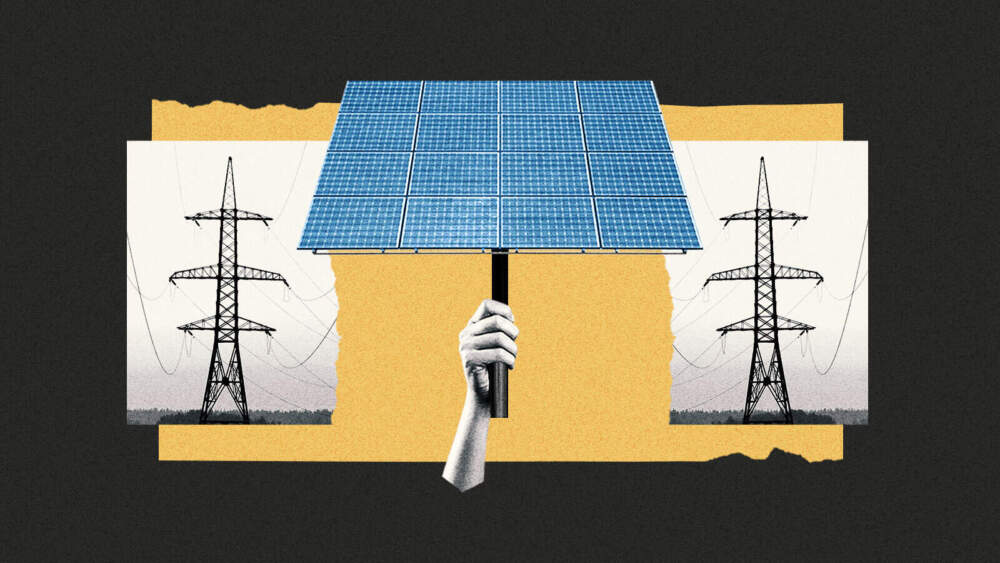
This story was produced by Grist and is co-published with WBUR.
At the end of October 2017, a severe windstorm swept through the state of Maine, felling trees, knocking down power lines, and wiping out electricity for nearly half a million people. Larissa Smith, a longtime Maine resident who was living in Freeport at the time, lost power at her home for nearly three weeks.
That’s why she was surprised when, a few weeks later, she received a monthly bill from her utility company, Central Maine Power, or CMP, charging her close to $200 for electricity usage.
“I called CMP, and I’m like, ‘How are you even charging me at all?'” she said. The bill was at least $70 higher than any she had received within the past year. She called CMP’s customer service multiple times and asked them to send someone to check her electric meters. “They just kept saying, ‘You’ve got to pay your bill, or we'll shut off your power,’” Smith said.
Smith is part of around 21% of Maine’s population who saw their electricity costs soar after a new billing system was introduced by the investor-owned utility in 2017. CMP declined to comment on Smith’s experience, citing public utility commission policies.
CMP and Versant, a smaller investor-owned utility, distribute 97% of Maine’s electricity. Over the years, CMP has come under fire for unexplained billing increases, unwarranted disconnection notices and delays in connecting new solar projects to the power grid. Both companies have been criticized for unaffordable rates, poor customer service and prolonged outages during storms.
Now, a referendum could spell the end of both utilities. On Tuesday, Question 3 on Maine’s ballot will ask voters to decide whether they want to oust CMP and Versant and replace them with a nonprofit, publicly owned utility called Pine Tree Power. The proposed utility would buy out the existing utilities’ infrastructure using revenue bonds, and would be governed by a board of elected officials and appointed experts.
While a public takeover of the power grid has happened before at the local level, Maine’s referendum is the largest effort in decades, and the first-ever push for a statewide public power company.
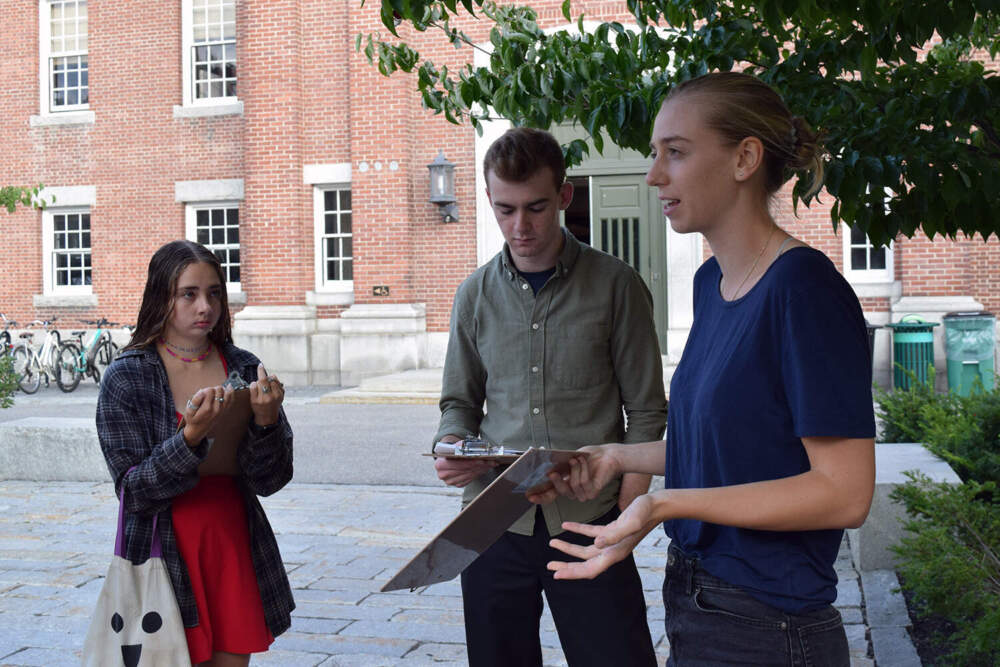
One poll found Maine voters evenly split on the ballot initiative, with about 25% undecided. Many residents have their fair share of unanswered questions, and some want a level of assurance about their rates under a new utility that’s impossible to provide. Whether they believe that public ownership could make affordable, clean, and reliable electricity possible — and whether taking that leap of faith is worth the potential risks — is the question that will determine Maine’s energy future.
Growing discontent with energy cost and reliability
Representatives from CMP and Versant told Grist that while they acknowledge customers are struggling to pay their bills, neither company controls nor profits from power supply costs, which are driven by underlying energy prices and make up close to 60% of an electric bill.
In 2019, former state Rep. Seth Berry introduced a bill to create a public power authority for Maine. He said the change would make energy more affordable. But he also said that investor-owned utilities like CMP and Versant have impeded efforts to electrify Maine. Decarbonizing Maine's economy will require huge investments, as well as an expansion the capacity of the power grid.
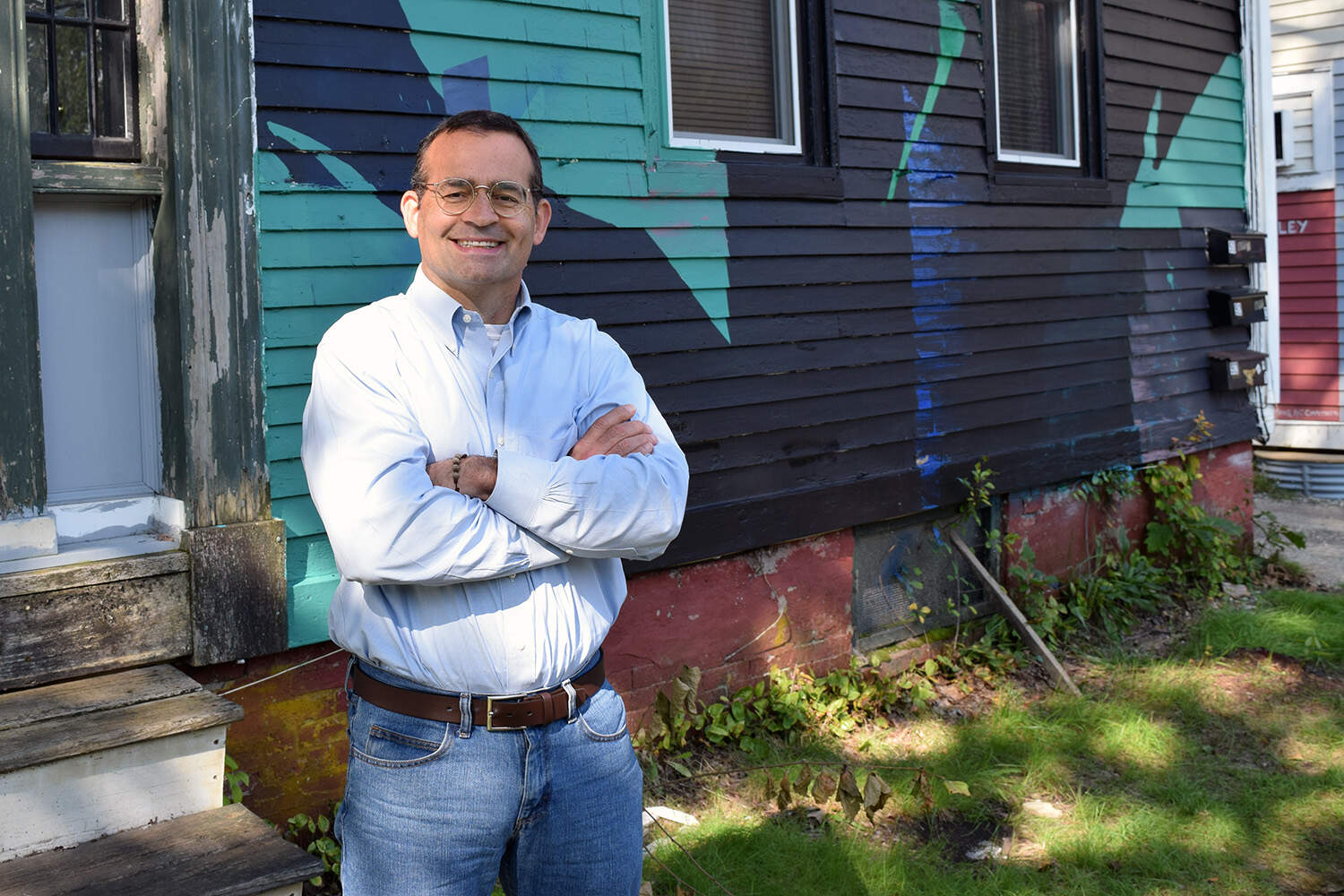
In 2017, CMP successfully lobbied state legislators to strike down a net-metering law in Maine that would have allowed households with rooftop solar to earn money for the electricity they add back into the grid. Solar developers in Maine have also accused CMP of causing unexpected delays in connecting their projects to the grid.
But CMP and Versant argue they’ve supported this work in other ways. CMP spokesperson Jonathan Breed said that CMP supported a different solar law that passed in 2019 and said that the company is on track to install 500 megawatts of solar since the bill’s passage. Long told Grist that despite being a relatively small utility, Versant has worked with developers to connect more solar and other renewable power than needed to meet current energy demand.
Unlike investor-owned utilities, publicly owned utilities typically don’t operate at a profit, and they don’t pay dividends to shareholders. Public utility customers experience more reliable service, with an average of one hour of interrupted service each year compared to about two hours experienced by investor-owned utility customers, according to the U.S. Energy Information Administration. The average household also pays about $15 less per month using a publicly owned utility compared to an investor-owned utility.
And while both public and private utilities continue to rely heavily on fossil fuels, Berry said it’s no coincidence that several public utilities, from Rock Port, Missouri, to Greensburg, Kansas, were among the first to be powered by 100% renewable energy.
Berry's early efforts to pass a bill to create a publicly owned power system failed, despite popular support. So he and an advocacy group, Our Power, shifted their attention to collecting signatures to get a slightly tweaked version of the bill on the next ballot as a referendum.
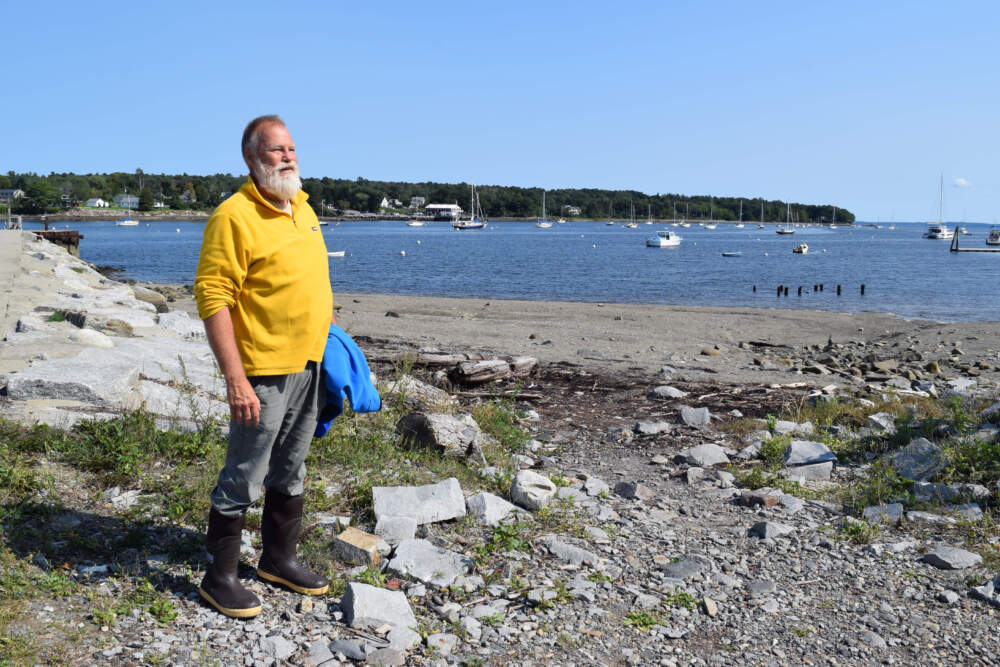
Jonathan Fulford, a former state senate candidate and a co-founder of the Our Power group, said convincing voters to agree to put a question on the ballot is one matter. Actually getting them to take a leap of faith on a nonexistent public utility, and defy a multimillion dollar campaign to stick with the status quo, will be a true test for Our Power’s grassroots advocacy.
“Now you have to educate people so that when the attack ads and disinformation campaign gets going, they are resilient enough to stick with why this makes sense for them to vote for it,” Fulford said. “That’s a whole nother campaign.”
The costs of creating a publicly owned utility
CMP, Versant and their parent companies have paid more than $41 million to three political groups opposed to the Pine Tree Power referendum, according to the Maine Ethics Commission, a state agency that tracks campaign finance. Combined, the utilities’ ballot opposition funding is more than 34 times higher than that of Our Power, which has received roughly $1.2 million to date according to the agency.
Willy Ritch, director of Maine Affordable Energy, one of the ballot opposition groups, said his campaign reflects “concerns we hear from voters all over the state,” through participating in forums, tabling at events and festivals, and canvassing.
By far the biggest concern, Ritch said, is the cost of buying out the utilities — a cost that will eventually be borne by ratepayers.
If approved, the new public utility would need to first buy all the existing poles and wires that CMP and Versant use to deliver power to millions of customers using utility revenue bonds, a type of loan commonly used by local governments and paid back through the utility’s future revenues.
The cost of the takeover has been heavily disputed. A study commissioned by the Maine state legislature estimates that the final price will likely be 1.5 times the assets’ underlying value, citing the premium paid when Enmax acquired Versant in 2020.
That works out to roughly $8.25 billion, although that number could fluctuate as assets wear out over time, or as any upgrades or additions are made to the grid. Our Power said the Pine Tree Power board will negotiate as low a premium as possible, while the opposition estimates a higher cost of $13.5 billion, a number that is featured prominently in almost all of Maine Affordable Energy’s ads.
Ursula Schryver of the American Public Power Association, an industry group representing consumer-owned utilities, said the real number will likely end up somewhere in the middle. But she emphasized that the debt will be paid off incrementally through revenues over a period of decades, not all at once.
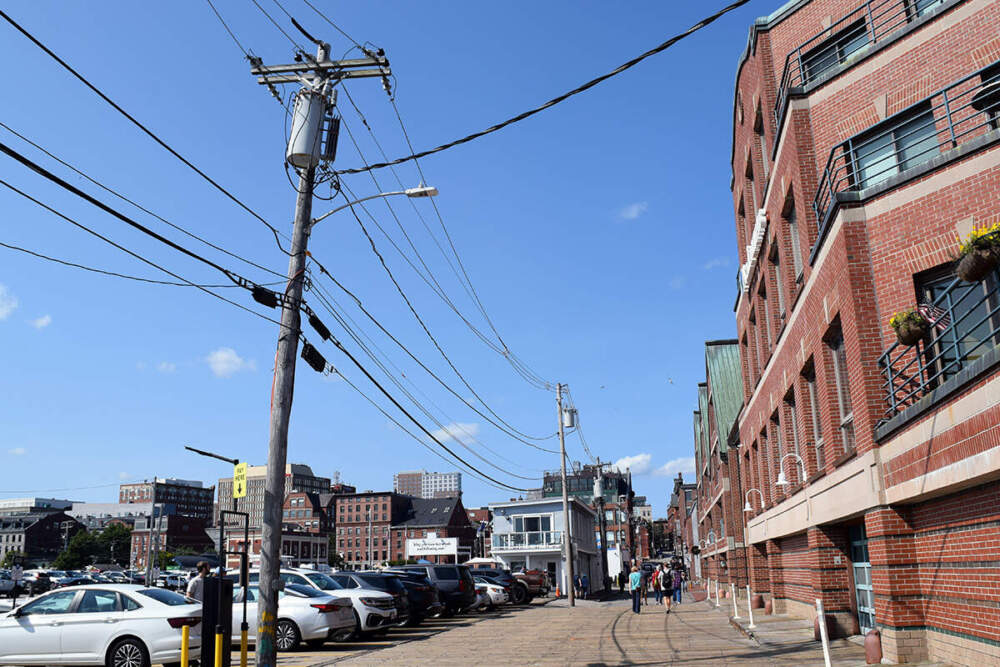
Maine Affordable Energy, on the other hand, maintains that the burden of the initial debt will fall onto consumers and result in higher electricity rates.
“Somebody’s gotta pay it back, right? And the only people that can pay it back is us, the ratepayers,” Ritch said.
The study commissioned by the Maine legislature projected that, in part due to the initial cost of buying out the utilities, electric rates under a public utility could be higher in the first decade of operation and would then continuously go down. Our Power activists point to another analysis that adjusted the independent study’s model and found that ratepayer savings would begin immediately and add up to a cumulative $858 million over 30 years.
However, Pine Tree Power would first face an uphill legal battle against the legacy utilities. Ritch argued that the ensuing litigation and bureaucratic delays involved in buying out the utilities would take up to 10 years to resolve, a timeline often repeated in the opposition’s ads.
CMP and Versant were reluctant to comment on any specific litigation plans, but there’s little doubt from both sides of the campaign that the utilities will inevitably throw their resources behind challenging a buyout and disputing any selling price in the courts.
And some are concerned that if the current utilities prevail, it will slow key efforts to reduce emissions. Kenneth Colburn, a former director at the Regulatory Assistance Project, an energy policy nonprofit, said this moment is critical for decarbonizing Maine’s power grid to have a shot at a livable future. He worries that the existing utilities are “dragging their feet” when it comes to climate policies.
CMP and Versant, he said, are displaying “reluctance to depart from the way we've always done it. And this is a time where departure is not only necessary, it's possible.”
Selling local power, person by person
At Common Ground, a festival held each September by the Maine Organic Farmers and Gardeners Association, state Sen. Nicole Grohoski gave a presentation on Pine Tree Power. She is one of the first people Berry roped in to help with the initial legislation back in 2019.
“Can anyone here name someone who serves on the CMP or Versant board?” she asked the 50 or so people sitting on folding chairs and squinting against the bright sun.
No one raised their hand.
“Do you think their email addresses are online? They are not. Mine, on the other hand, is, and so is my cell number,” she said. “That’s the difference between someone who’s working in the public’s best interest, who’s elected by the public, and someone that’s been put there because of their financial interests.”
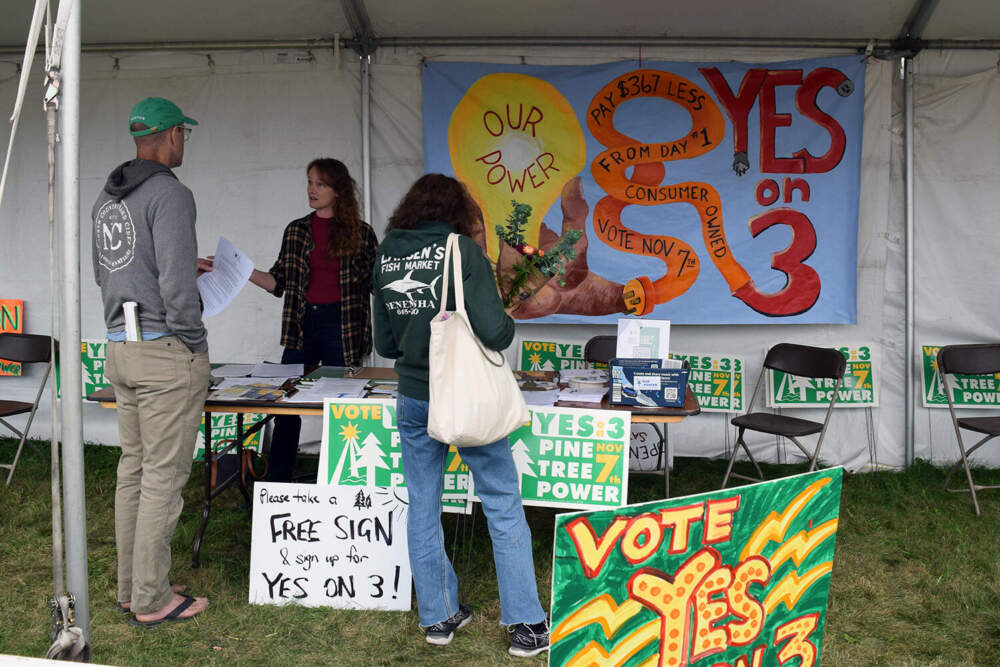
CMP and Versant, meanwhile, have framed the idea of local governance as introducing runaway partisanship and politicking into the state’s energy affairs, warning that Pine Tree Power would “put our electricity in the hands of politicians,” as one campaign ad argued.
It’s true that local governance is no guarantee of success. Publicly owned utilities, like private utilities, have been accused of setting unaffordable rates, lobbying to derail rooftop solar, and delaying the switch to renewable power.
Fulford knows that even if the referendum succeeds, there’s still a long road ahead for public power in Maine.
“If it passes, we have a ton of work,” he said. “The opposition will not stop. They will pour all the resources they can, in every way that they can think of, to undermine this.”
The investor-owned utilities are terrified, he said, because Pine Tree Power doesn’t just threaten the existence of CMP and Versant. It could encourage other public power campaigns, already growing in number and popularity across the country, to follow suit.
“This would set a precedent that could echo across the entire country,” Fulford said.